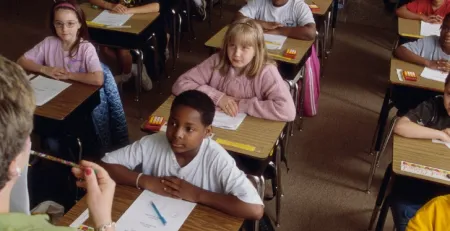Why School Psychologists Must Assess for Trauma During Evaluation
Educators and mental health professionals have grown increasingly concerned about the exposure to and experience of trauma among children and adolescents. In a school setting, childhood adversity and trauma are associated with lower achievement, truancy and dropout, behavioral problems, mental illness, neurobiological changes, and difficulty managing emotions and social relationships (Hertel & Johnson, 2013).
Addressing and responding to trauma is essential to the mission and purpose of schools: learning (Rossen & Cowan, 2013). A recent publication by the U.S. Center for Substance Abuse Treatment states that screening for trauma during evaluation is imperative, as “…not addressing traumatic stress symptoms, trauma-specific disorders, and other symptoms/disorders related to trauma can impede successful mental health and substance abuse treatment.”
The need to address trauma during evaluations is critical. We connected with Xali Sommers, Ed.S., a Nationally Certified School Psychologist who works at Poudre High School in Fort Collins, Colorado, about the significant need for trauma screening. Xali currently serves around 1,800 secondary students and has recent experience in schools with extensive programming for students with Serious Emotional Disabilities. She has been a practicing school psychologist for nearly 19 years and is passionate about working with students from diverse backgrounds and students living in poverty.
The following interview has been edited for length and clarity.
How often have you seen trauma-like symptoms when supporting youth in the school system?
XALI: I would say I see symptoms daily. My experience with trauma in the school setting is so complex, and so much of it is unknown or unseen. I can assume that every child I interact/work with comes from a background with varying degrees of trauma. Symptoms from trauma vary from internalizing (anxiety/depression), which can look like refusal to go to school, enter class, elopement from the school, shutting down, refusal to work, refusal to interact, and panic attacks. School refusal continues to be an area I see of growing concern. In addition to internalizing behaviors, externalizing behaviors (aggression) can be a daily occurrence in our youth with significant trauma. This is directed both toward others and toward self.
Trauma can show up for students in many different ways. From being shut down to difficulties making and keeping friends, lack of social awareness, lack of understanding of social norms, difficulties following rules, refusal to enter class/social settings, panic attacks, isolation from peers, difficulty building relationships with adults or not being able to attempt/access academic tasks. Behaviors can also include elopement, hiding under desks, and physical and verbal aggression towards self or others.
How can not addressing traumatic stress symptoms, trauma-specific disorders, and other symptoms/disorders related to trauma impede successful mental health support?
XALI: A critical part of my role in schools is understanding the function of behavior. When a behavior is a trauma response, the way I respond can either create additional trauma or begin to build a sense of safety for that child. For example, when students seek a specific tool to feel safe, such as a blanket, stuffed animal, or finding a quiet place, yet they are using these tools in a way that may not be socially appropriate, we need to find a socially acceptable way for a child to feel safe while using their tools. I create a space where these students can use their tools and continue to maintain appropriate social expectations. It is important not to shame or take away tools that support students with trauma but to be creative in when, how, and where they use these tools.
What steps should school psychologists take when screening for trauma among students?
XALI: For me, the first step is to do a thorough developmental interview with the family to understand past exposure to trauma and reactions by the child to that trauma. It helps me understand current behaviors and how they relate to previous trauma. I also interview the child to understand better their fears/triggers (especially in a school setting), coping skills, and support people. I know some of our school psychologists have also been trained in [other trauma screens] and they are using this tool in the multi-tiered system of supports (MTSS) and/or individualized education plan (IEP) process in schools.
How can a school psychologist create an effective screening and assessment environment for trauma?
XALI: I typically evaluate students I already know and have a relationship with, which helps because I have often developed a relationship with the family and child. I prepare every child I evaluate ahead of time and provide positive reinforcers of their choice during the evaluation. I continue to reassure a child that they are doing a great job and that I appreciate their effort. I consult with other school psychologists about specific measures that would be appropriate to screen trauma. In addition, I complete a thorough background history and interviews with the student, parents, and teachers. I also consult with people on our Multicultural and Assessment Teams, and I ask questions of the families I work with to get to know what their goals and dreams are for their child, as well as their worries and fears.
I think the most challenging part about childhood trauma and working in schools is supporting other professionals (such as teachers, administrators, or office staff) to understand that punitive measures to address behavior are our most significant obstacle in addressing trauma. By sending students home, suspending, or expulsion, we further remove and isolate students who already lack a feeling of safety in school. It creates a cycle that increases a child’s disconnection from school and puts them in situations where they are more likely to be exposed to additional traumatic events.
Learn more about MHS’ range of Education assessments that can be leveraged during evaluation of students.










